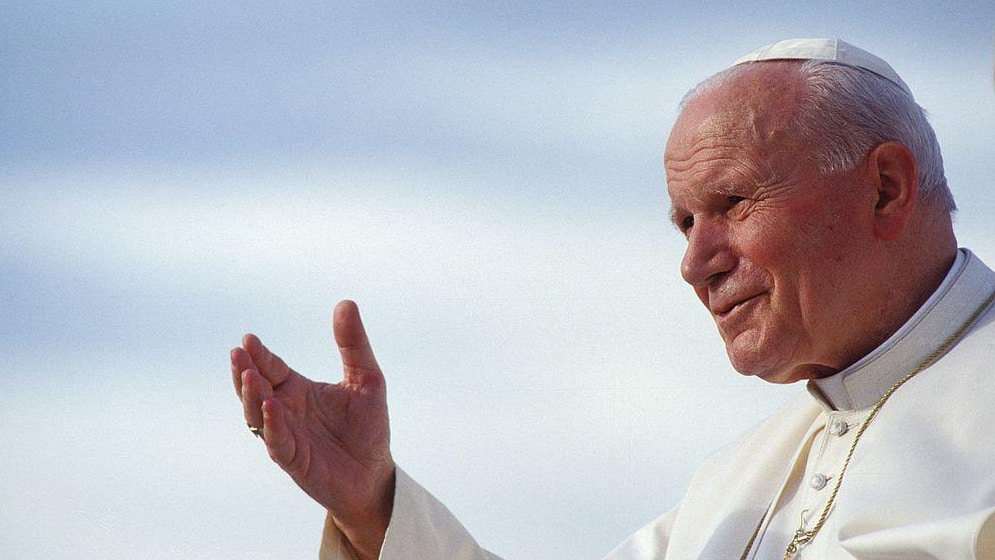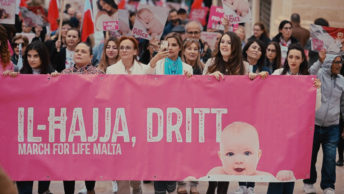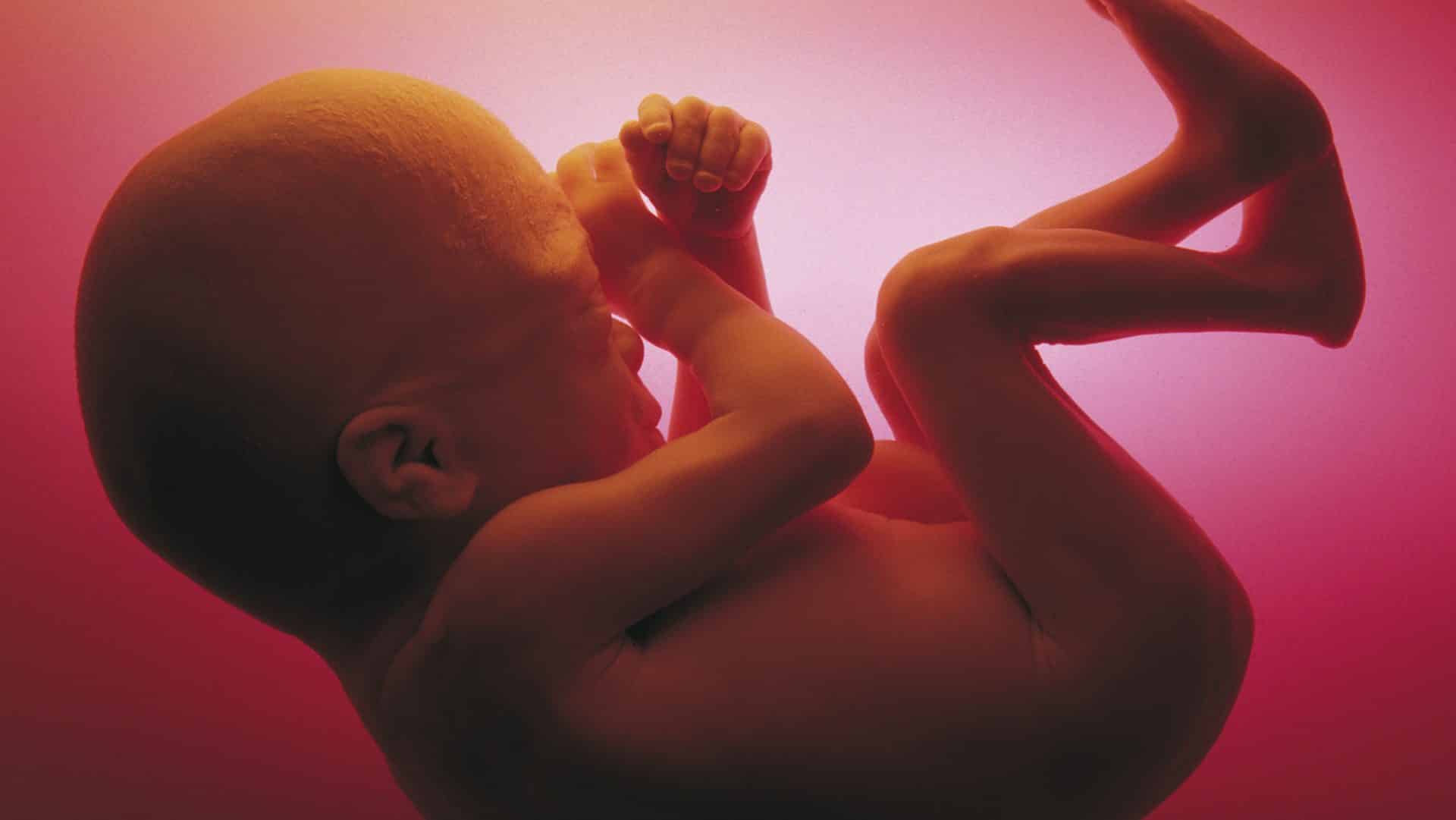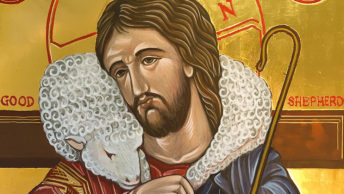In 1989 a Christian relief organization named World Vision began an assistance project in the African nation of Ethiopia, building an irrigation system for the impoverished residents of a remote, arid valley. The relief workers had to contend not only with the people’s overwhelming poverty, but also with their superstition. There was a giant tree near the bank of the area’s only river, and over the generations the people had come to believe that magical spirits lived in the tree and gave it divine powers. Adults worshipped the tree, reverently kissing it whenever they passed by, and on the rare occasions of a life-giving rain storm, the children gave credit to the tree, saying, “This tree saved us.” When the relief workers began building the irrigation system, the people offered sacrifices to the tree, for otherwise, they insisted, it would be upset that the old order of things was being changed. The Christians realized the people would never accept Jesus as long as they were enslaved in superstition and fear, but they weren’t sure what to do about it—until they read the Scripture passage from the Gospel of Luke (17:5-10). Relying upon Our Lord’s promise, they began praying that God would bring down the giant, menacing tree—and it soon became known to all the people that the Christians were praying for this intention. It took six months, but then the tree began to dry up; its foliage disappeared, and finally it collapsed and fell into the river—all without a human hand being raised against it. The people were shocked and amazed, and exclaimed, “Your God has done this! He has dried up the tree!,” and as a result, about 100 people converted and received baptism (Craig Larson, Choice Contemporary Stories & Illustrations, #225). This true story is a symbol of our spiritual struggle against sin and evil in the world—and a reminder that Jesus promises final victory to those who persevere and serve Him in a spirit of humble trust.
If you were the wealthy owner of a business that you had established and built up into a major and very profitable company after years of hard work, and if you had a son who had just graduated from college and was coming into the business, with the idea that one day he would take it over from you, where would you have him start? Chances are you wouldn’t immediately appoint him as executive vice-president; no, if you wanted him to learn the ins-and-outs of every aspect of the company, and have the opportunity to prove himself worthy to inherit it one day, you’d probably have him start at the bottom—perhaps in the mail room or on the assembly line—and work his way up. That’s also God’s approach. We are His beloved children and heirs to His Kingdom—but that doesn’t mean we get to start at the top or have an easy, comfortable life head of us. Instead, as St. Paul instructs Timothy (2 Timothy 1:6-8, 13-14), we must “bear our share of hardship for the Gospel with the strength that comes from God”—in other words, we must be willing to make the sacrifices involved in doing what’s right and in placing God’s will first in our lives, even if this makes us unpopular or misunderstood. At some point we’ll probably become weary or discouraged, and like the prophet Habakkuk (1:2-3; 2:2-4), cry out, “How long, O Lord?” However, the Lord promises us, as He did His prophet, “The vision has its time, presses on to fulfillment, and will not disappoint; if it delays, wait for it, it will surely come, it will not be late.” Furthermore, Jesus reminds us that as God’s servants, we are not free to do whatever we want, nor are we in charge of the timing of events; our role is to be faithful and humble, trusting that God in His love will bless us and help us at the proper time.
The modern Civil Rights Movement began in 1955 when, in Montgomery, Alabama, a black woman named Rosa Parks was arrested for refusing to give up her seat on a bus to a white man, even though that was the local ordinance. The subsequent boycott of the bus company by black residents grew into a nationwide crusade for equal rights under the law, culminating in legislation outlawing racial discrimination. A moral and legal victory that once seemed impossible began with a mustard seed, one simple act of resistance. Dr. Martin Luther King Jr. was a leader in the Civil Rights Movement. Today his niece, Dr. Alveda King, is a leader in the effort to defend human life. She stated, “For many years I have been an outspoken advocate for the unborn child, because in a culture of abortion, the child is like a slave. The new Civil Rights Movement of our time is the Pro-Life Movement.”
Our culture of death, as Pope St. John Paul II called it, will do almost anything to avoid discussing, understanding, or accepting the truth that every unborn child is made in God’s image and likeness, and thus infinitely valuable. Nevertheless, Jesus promises His Church will prevail and His Kingdom will come. That’s why we are not wasting our time observing Respect Life Sunday every year on this first weekend of October, as shown by the Supreme Court’s decision last June to return abortion policy to the states. For forty-nine years, pro-life leaders and volunteers worked and prayed for this seemingly impossible goal; it was finally achieved—but much remains to be done. In particular, in Michigan, all persons who truly love God must work and pray together to defeat Proposal 3, which would enshrine abortion in our state constitution and represent a grave offense against God’s law.
Today the Church reminds us of our moral obligation to be pro-life in every aspect of our lives, especially in the voting booth. If in our pride and stubbornness we insist, “No one’s going to tell me how to vote!,” our Gospel passage convicts us: it convicts us of falling far short of that humble and faithful service to which Jesus calls us. Many journalists, opinion makers, and politicians foolishly and arrogantly proclaim “separation of church and state!” in regard to moral issues, but the truth is there are no such limits when it comes to God’s authority, nor in regard to our obligation to serve Him and cherish and defend His gift of life. Today’s culture of death is like a giant, oppressive tree enslaving people through fear and superstition—but through the power of God, it will come crashing down. Through our prayers, our example of integrity and courage and compassion, our contributions to the pro-life movement, our volunteer efforts and service to those in need, and through our votes for pro-life measures and candidates, we’re called to participate in the struggle and to share one day in the fruits of God’s victory. Christ’s Kingdom is coming—and each day our decisions and actions help determine whether or not we’ll be part of it.








